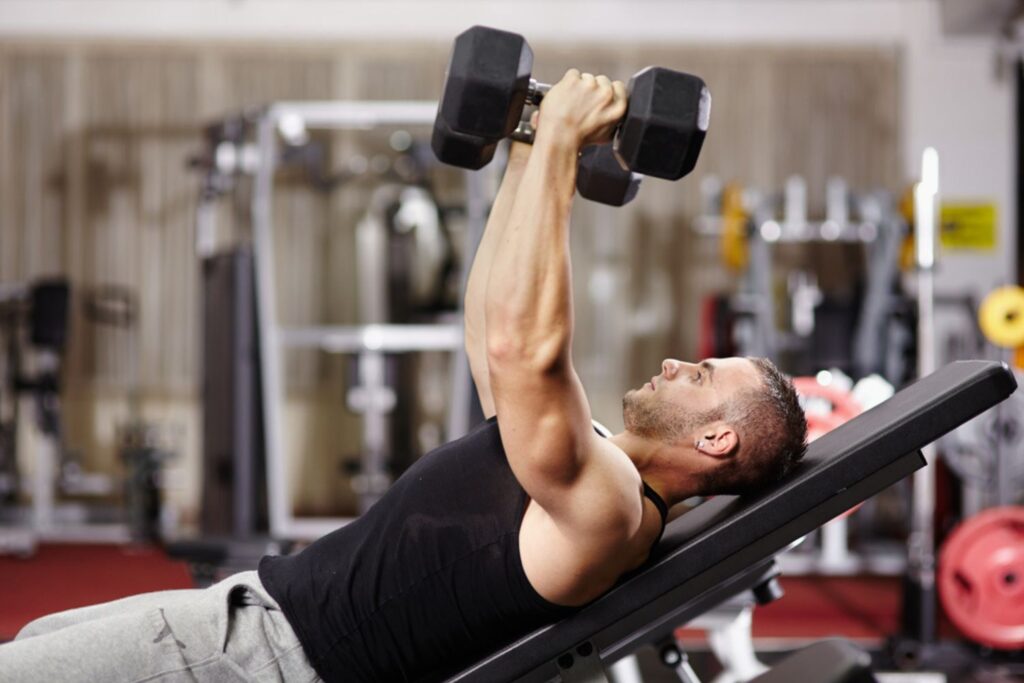WE ALL KNOW that breakfast is the most important meal of the day, but we also know that the key to achieving holistic health is maintaining a balanced and varied diet, which doesn’t always necessitate adherence to a rigid schedule. In our modern world, where timetables frequently shift and spare time can be hard to come by, sticking to a strict meal plan is easier said than done. The same can be said about a fitness routine, meaning there’s even greater confusion when these areas crossover.
Nutrition plays an important role in holistic fitness, and it should inform your approach. That being said, there are different ways to harness nutrition’s energy boosting and fat loss inducing powers. So, should you fuel up before hitting the gym or lace up your sneakers on an empty stomach? The answer will depend on your goals and what you want to get out of a workout. To help you navigate this often contradictory space, we’re breaking down all the basics surrounding eating before working out.
What are the benefits of eating before working out?
Pre-workout meals prime your body for optimal performance during exercise. When you wake up, your glycogen stores, which serve as the primary fuel for muscles and provide the energy needed for exercise, are depleted after a night of fasting and will remain in this state until you eat something. Eating a balanced meal replenishes these stores, providing your muscles with readily available energy, which you need for peak performance. Your glycogen stores will also reduce throughout the day between meals, so if you eat breakfast but skip lunch and dinner, you’ll also be short on energy if you’re planning a night workout.
Eating before a workout is especially beneficial for endurance athletes, who need to dig deeper for energy during a prolonged workout. A 2020 study published in the Journal of Sports Medicine found that at best, fasting before a workout had no effect on the performance of highly trained athletes and at worst, negatively impacted their output.
Additionally, eating before a workout can prevent hypoglycaemia (more commonly known as low blood sugar), which can lead to dizziness, weakness, and poor concentration – in other words, it’ll ruin your workout.
For most people, eating breakfast – or any food for that matter – before a workout is the best option. This ensures you’ll have enough energy to promote optimal athletic performance. Don’t eat too much though. Nothing ruins a workout faster than a stomach ache.
What are the benefits of fasting before working out?
On the flip side, there are benefits to hitting the gym or track sans breakfast, but they’re far more specific to individual goals. Fasted workouts have benefits for fat loss and metabolic health. When you exercise in a fasted state, your body taps into – and burns – stored fat for fuel since glycogen levels are low. Fasted workouts can also increase insulin sensitivity by reducing blood sugar levels. A 2022 study published in the Journal of Exercise Science and Fitness looked at the effects of fasted exercise on 30 young men over a period of six weeks. Researchers found that “all subjects except the blank control group had significantly lower body shape indexes”, and that the “percentage of body fat in the group decreased very significantly.”
Therefore, it has been proven skipping breakfast before working out or exercising on an empty stomach can be beneficial if you’re trying to lose weight. This point was further clarified in a 2017 systematic review and meta-analysis of five relevant studies conducted by researchers from the University of Sydney and University of New England, which found that the results of fasted exercise were similar across the board.
This is where the benefits of skipping breakfast before working out end, however. Unless you’re trying to burn some fat and lose weight, fasted exercise doesn’t have many proven benefits. Ignore that pseudoscientific chatter which suggests exercising without eating unlocks some sort of second wind that will magically bolster your output.
So, should you skip breakfast before working out?
Ultimately, whether you should eat breakfast – or other meals – before working out depends on what your goals are. If you’re going for a PB or are pushing for a greater level of exertion than usual, you’ll need fuel to burn and the energy to perform at your best. If you’re trying to lose weight, skipping breakfast can have fat-burning benefits, but even still, it won’t be for everyone.
To discover what’s best for you, beyond considering what your goals are, listen to your body and experiment with different approaches to determine what works.
What should you eat before working out?
If you choose to eat before exercise, opt for a balanced meal consisting of carbohydrates, protein, and healthy fats to effectively fuel your workout. This doesn’t necessarily mean ingesting a hearty meal that will make you sick once you start moving. Supplements, or even a trusty protein bar, should suffice.
Conversely, if you prefer fasted exercise, it’s important to stay adequately hydrated because your exhaustion threshold will be much lower.
What should you eat after working out?
Eating after a workout is more important for those who’ve chosen to fast before exercising. If that’s the case, refuelling isn’t just an option, it’s probably necessary. If you’ve completed a fasted workout, you’ve likely exhausted all of your glycogen stores, meaning your body has had to burn existing fat to keep itself going. This can very quickly lead to negative results, so fuel up with some carbs, protein and fats accordingly. And no, this doesn’t mean you’ll immediately lose all your gains and undo what you just worked so hard for. The purpose of working out on an empty stomach is to burn fat. Having burnt that fat during your workout, the work has already done and consuming non-saturated fats won’t immediately result in new fat build-up, as it will be needed to bolster fuel stores.
If you have fuelled up before exercise with a pre-workout meal, following up with a post-workout meal can still be beneficial. Regardless of how much you’ve eaten on any given day, working out will burn through your fuel stores, which will need to be replenished. A post-workout meal that’s high in protein can also promote muscle growth, which is the reason you’re working out anyway, right?
Whether you choose to skip meals before working out or prefer to stay as fuelled up as possible, the most important point to remember is that the most beneficial option will be specific to you. To find what works best, experimentation and some good old fashioned trial and error are your best bet.

Getty Images
Related:
The best pre-workout snacks to keep going at the gym
Dry Scooping: What You Need To Know About The Viral Pre-Workout Trend
















